Holy Island land train plan faces backlash
- Published
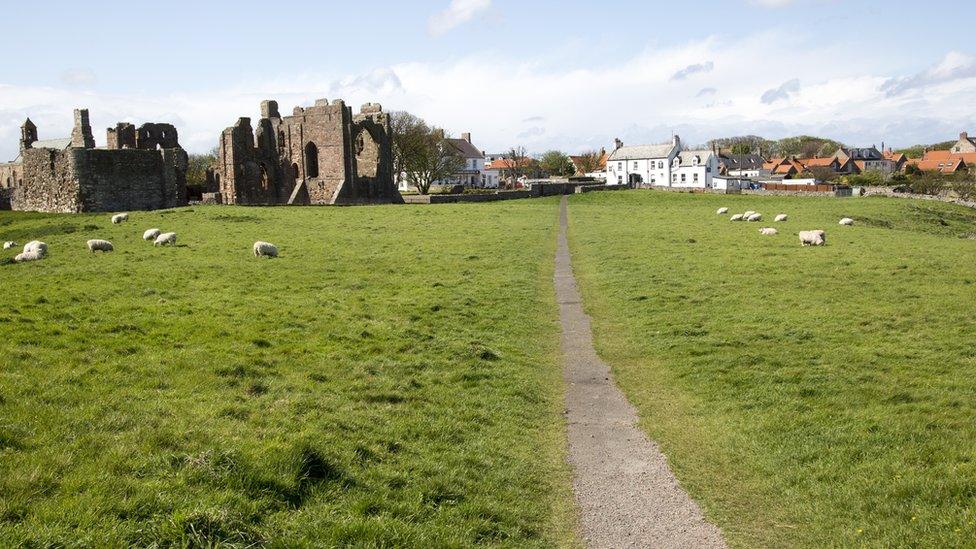
As well as being popular with tourists Holy Island is also home to people living in the village
Plans for a land train on Holy Island have been met with a backlash from some locals who claim it will cause "chaos" due to the village's narrow roads.
The vehicle is to be trialled for a month and would replace a shuttle bus if it proved successful with tourists.
A petition against it started by resident Nicola Douglas has attracted more than 1,400 signatures.
Northumberland County Council said the land train "does not pose any unacceptable risks to public safety".
Land trains, which are sometimes referred to as road trains, are a series of linked carriages on wheels which are pulled by a motorised unit. They are often found at tourist attractions and seaside resorts.
Ms Douglas said Holy Island was "not a theme park" and was a "unique" and "spiritual" area.
"Tourists come here for a leisurely stroll around, they browse the shops, they go to the priory, the castle etc but then they are always going to have to be looking behind their back for a road train, to move into the side."
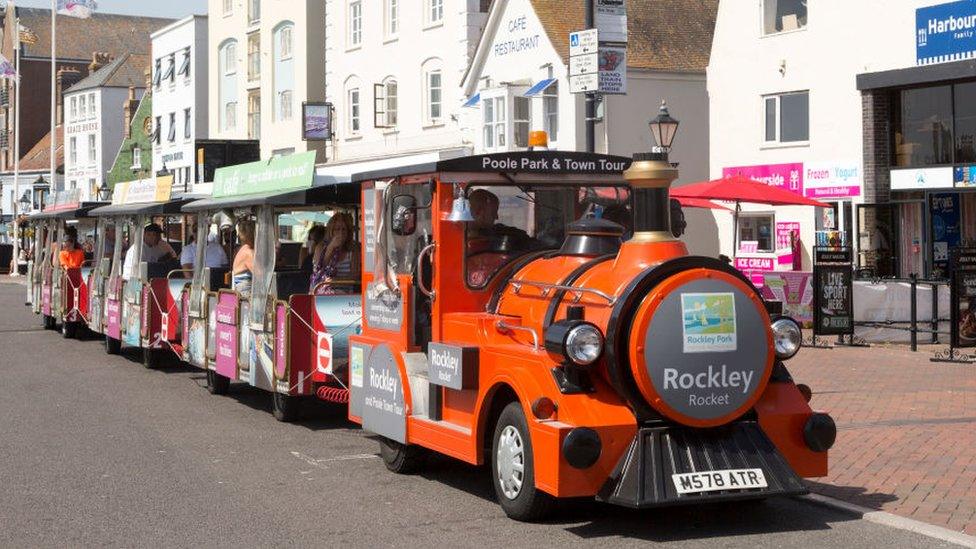
Land trains, like this one at Poole in Dorset, are often found in popular seaside towns and tourist attractions
The land train would take passengers from the car park to Lindisfarne Castle as part of its route.
Ms Douglas said the village's narrow roads and small number of pavements were "bustling with tourists" and the majority of those who backed her campaign were visitors, some of whom said they would return to protest.
She also claimed local businesses would be affected.
"Personally, I don't want to be sitting in my house when I am hearing and seeing a train - or hearing any tooting as it goes past," she added.
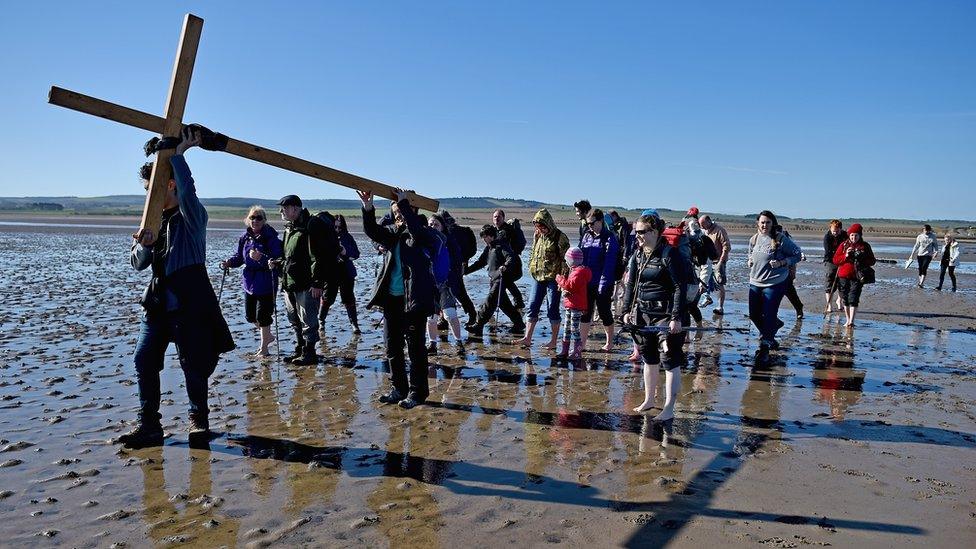
Each year the area becomes popular with Easter pilgrims
Northumberland County Council said after receiving feedback it had approved the operation "in principle", which would be subject to a month-long trial.
"Land train vehicle applications are considered by the county council as well as by other agencies including the police, in respect of any risks to public safety on specified routes," it said.
"In its role as the highways authority, the council considers that the operation of the vehicle on the specified itinerary does not pose any unacceptable risks to public safety."

Follow BBC North East & Cumbria on Twitter, external, Facebook, external and Instagram, external. Send your story ideas to northeastandcumbria@bbc.co.uk, external.
Related topics
- Published9 March 2020
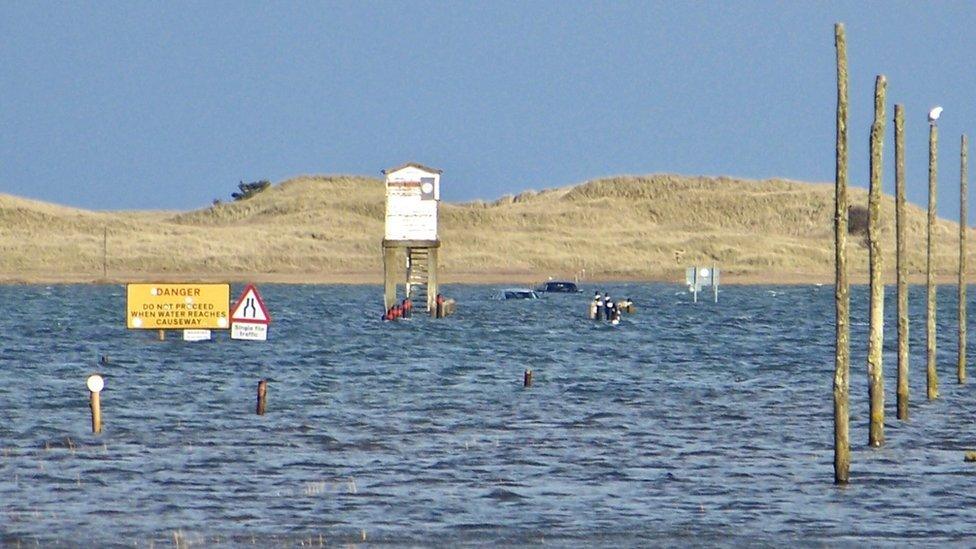
- Published21 March 2018

- Published24 March 2012
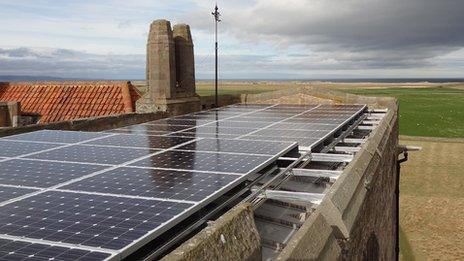
- Published7 April 2011